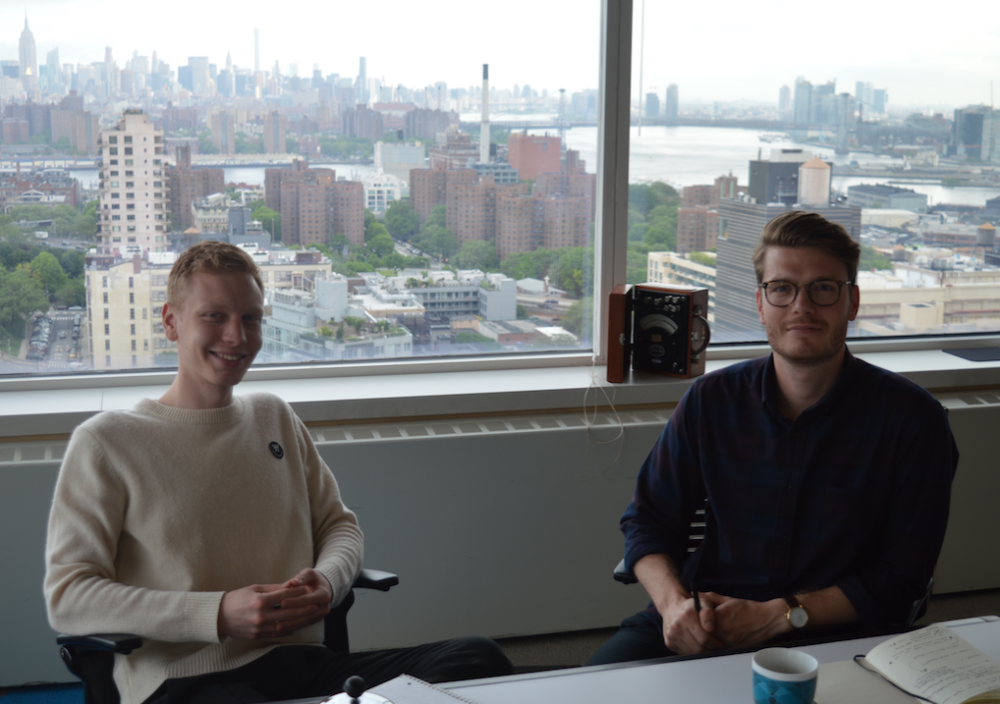When Danish company WindowMaster wanted to expand to the United States, they visited the Brooklyn offices of the Danish Cleantech Hub. There they met Jakob Olesen, a tall blond Dane who serves as the Hub’s project manager, and his team. They presented Olesen with their product: a miniature engine (known as an actuator) that can automatically open or close windows to exactly the angle that will provide optimal air temperature and quality, and, in turn, lower HVAC costs.
Olesen and his team connected Window Masters with a local architecture firm, and the two businesses are now working together to install Window Masters windows in a new Brooklyn building.
“Our goal is to figure out what we are doing in Denmark that is good for the U.S. in terms of clean technologies and vice versa,” says Olesen, who has been living in the United States for the past five years. “The idea is to facilitate the transfer of knowledge and ideas that are mutually beneficial.”
The Danish Cleantech Hub is the result of a public-private partnership between the Confederation of Danish Industry — a business organization with 10,000 members — and State of Green, a nonprofit aimed at promoting Denmark’s environmentally friendly agenda around the world.
If Copenhagen wants to discuss flooding solutions with New York City, we can facilitate that.
“Because Denmark is one of the lowest-lying nations in the world, we have been facing the consequences of a changing climate for a long time,” explained Julius Meilstrup, a business analyst with Danish Cleantech Hub. “Therefore we have already developed solutions for some of the issues other nations are just starting to face, and we want to make sure we share those solutions.”
The Brooklyn branch of the Danish Cleantech Hub operates out of the Urban Future Lab, a cleantech incubator in MetroTech Center. It functions mainly as a consultancy, performing market research and legal services for Danish organizations focused on urban planning, green development and renewable energy that are looking to expand into the U.S. The Hub also hosts about 25 events annually aimed at sharing cleantech knowledge and ideas.
“By virtue of us being in the United States and having this network of technologists, lawyers, distributors and public authorities, we can really help provide great access to the market,” said Meilstrup. “If Copenhagen wants to discuss flooding solutions with New York City, we can facilitate that.”
Since opening in 2014, the Danish Cleantech Hub has worked with over 40 private and public entities. While Danish organizations have been enthusiastic about leveraging their services, Olesen says he wants to market more to American stakeholders.
“We want America to understand how they are going to benefit from working with Denmark,” Olesen says. “If you are experiencing issues with building performance, efficiency, or renewable energy, we can help you find someone who has solved your issue.”
Bigger picture, the Hub wants to expand to help bring Danish solutions to every part of the world experiencing the effects of climate change. Along with Brooklyn, the organization has offices in Shanghai, Dubai, Nairobi, Munich and Gujarat, India.
“Climate change is not something the public or private sector can solve on their own,” Olesen said. “It requires a collaborative approach by all of us.”
Before you go...
Please consider supporting Technical.ly to keep our independent journalism strong. Unlike most business-focused media outlets, we don’t have a paywall. Instead, we count on your personal and organizational support.
Join our growing Slack community
Join 5,000 tech professionals and entrepreneurs in our community Slack today!
